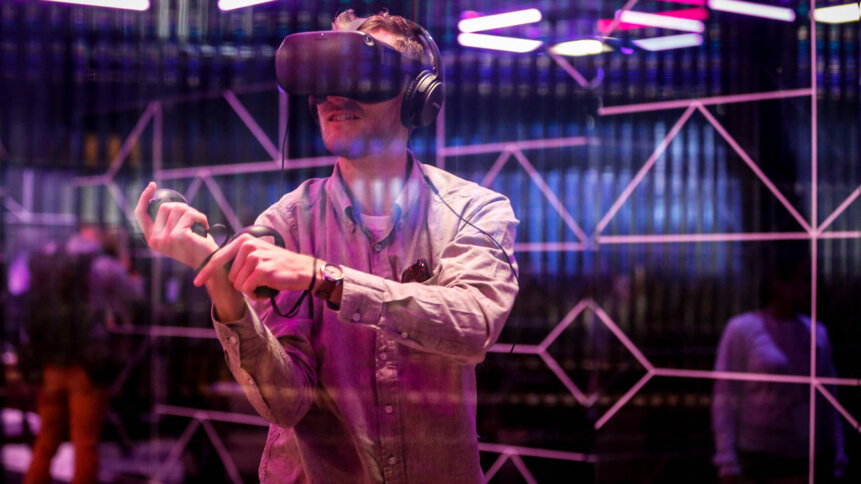Facebook’s parent firm Meta opened its Horizon Worlds virtual reality platform to the North American public for the first time this week, in a step toward building its metaverse vision for the future.
Horizon Worlds is far from a fully realized metaverse — the envisioned future 3D internet environment, where online experiences like chatting to a friend would eventually feel face-to-face thanks to virtual reality (VR) headsets. According to Meta chief Mark Zuckerberg, among the characteristics that the interconnected metaverse should have, is that it has to span the physical and virtual worlds, contain a full-fledged economy, and offer “unprecedented interoperability” — users have to be able to take their avatars and in-world goods from one place in the metaverse to another, no matter who runs that particular part of it. Critically, no one company should run the metaverse — it will be an “embodied internet,” as Zuckerberg puts it, operated by many different players in a decentralized manner.
While real-world connectivity is definitely in the offing thanks to augmented reality and haptic sensors allowing real-time interactions, for the time being, a VR public test will allow North American users to get their first tastes of a Facebook virtual space. Headset-wearing users in the United States and Canada can now gather with friends or others, play games, and build their own virtual worlds on Horizon as long as they are 18 years old and have the proper equipment.
Since last year, a testing version of the platform has been available to a limited number of users. In October 2021, Facebook renamed its parent company to Meta, moving up plans to emphasize its aim to shift from a scandal-prone social media platform to its virtual reality vision for its future.
“We want Horizon Worlds to be a safe and respectful environment, so everyone must follow our Conduct in VR Policy,” Meta said in announcing the opening. “You have several safety options… which lets you take a break and then block, mute or report people,” the statement added.
Meta-owned platforms Facebook and Instagram have been fighting to put behind them a crisis unleashed in September by reams of internal studies leaked to journalists and US authorities by whistleblower Frances Haugen. The documents underpinned damaging articles that generally argued the firm knew its products could harm users, but chose growth over safety.
The firm’s metaverse push also includes tools for remote working, which has boomed during the pandemic. Facebook in August unveiled technology for “Workrooms,” allowing remote collaboration for people using its Oculus virtual reality gear. The “Horizon Workrooms” project makes it possible to switch back and forth, from virtual reality to web conferencing, to adapt to different situations.











